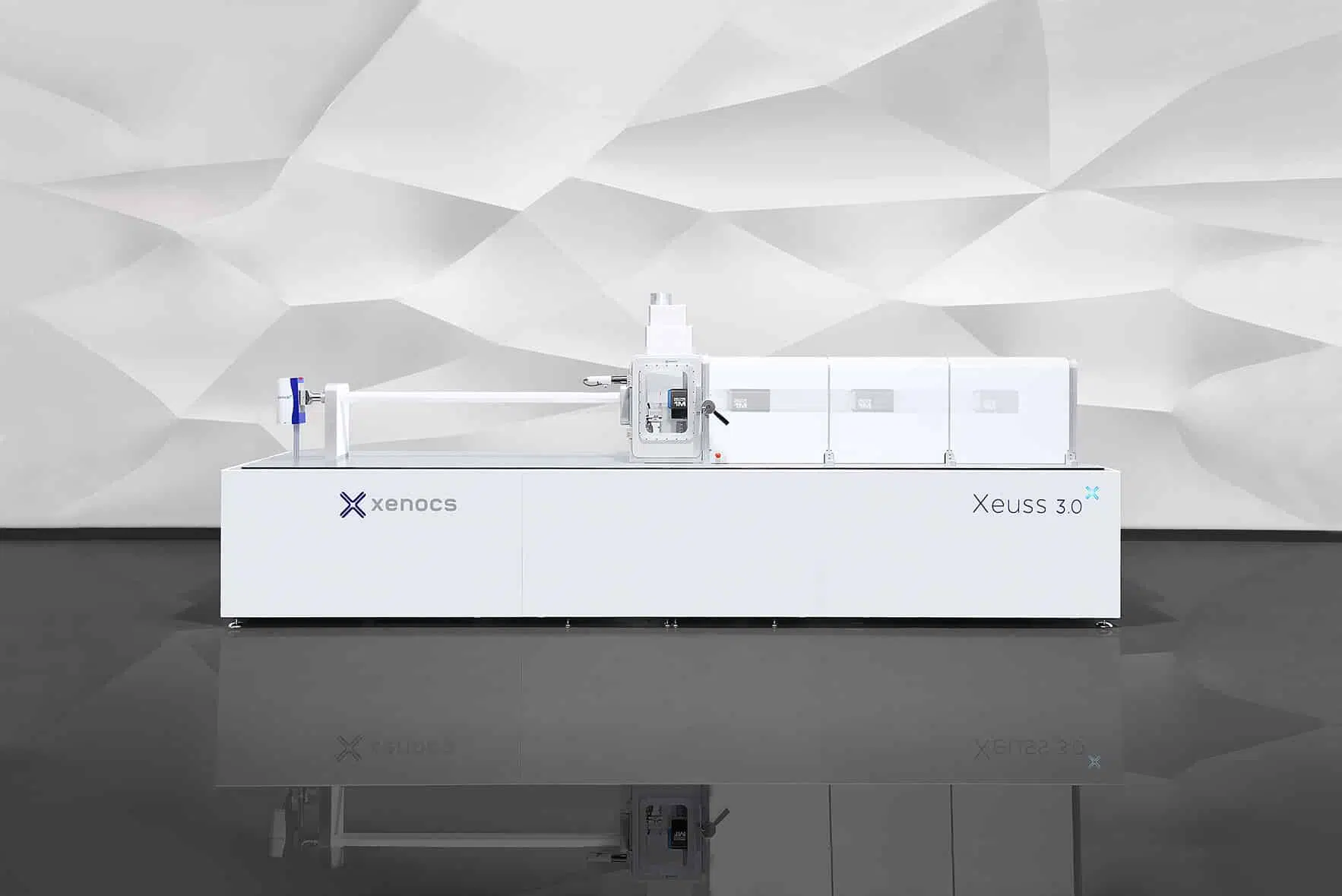Macromolecules, 2017, vol 50, 12, pp. 4742-4753
DOI:10.1021/acs.macromol.7b00873
Abstract
Thermoplastic elastomer (TPE) grafted nanoparticles were prepared by grafting block copolymer poly(styrene-block-(n-butyl acrylate)) onto silica nanoparticles (NPs) via surface-initiated reversible addition–fragmentation chain transfer (RAFT) polymerization. The effects of polymer chain length and graft density on the mechanical properties were investigated using films made solely from the grafted NPs. The ultimate tensile stress and elastic modulus increased with increasing PS chain length. The dispersion of the silica NPs and the microphase separation of the block copolymer in the matrix-free polymer nanocomposite were investigated using small-angle X-ray scattering (SAXS), transmission electron microscopy (TEM), differential scanning calorimetry (DSC), and dynamic mechanical analysis (DMA). The higher polymer graft density TPEs exhibited better microphase separation of the block copolymers and more uniform silica NP dispersion than lower polymer graft density TPEs with similar polymer chain length and composition.


































